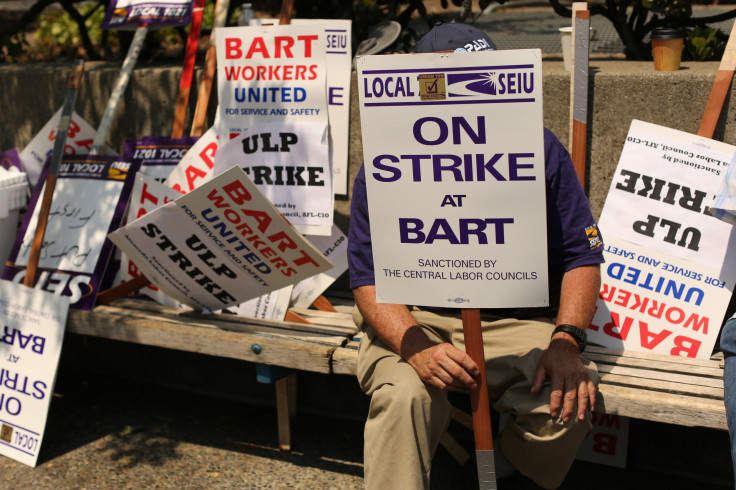If You Want To Privatize BART, You Can Probably Afford Something Else

The BART strikes are in full swing, and the reaction from the locals highlights striking differences in how different socio-economic status groups treat public services. Given its location in San Francisco, you would expect to see a outpouring of indignation from the tech industry, and you'd be right: PandoDaily has this amusingly myopic piece from writer Sarah Lacey (hat-tip to ValleyWag for pointing this one out), which ends with this money quote:
I’ll say this: The last few days have been a rare opportunity for cab drivers to shine. Every cab I’ve taken has been impeccably clean, accepted credit cards with no grousing, and the drivers have been incredibly polite. Although they all hate the scourge of Uber, Lyft, and Sidecar, the result of those services coming into the market is what’s made my commute to and from work bearable this week. Competition, it turns out, does indeed make everyone better. It’s too bad no one is working on disrupting BART.
Because "everyone" is really just people who can afford a taxi.
The divide between the tech industry and everyone else's reaction is easy to understand; for those can afford other options, the BART strike is a nuisance, an annoyance that would be better supplanted by equivalent (and pricier) private services. For those that can't, it's a severance from the lifeblood that allows them to function in their daily lives.
Kevin Roose of the Daily Intelligencer summarized it this way:
Notice the split here. The tech executive assumes that people who are stranded by BART can simply arrange for an alternative way of getting to their destination. (Incidentally, his company is also the one running a helicopters-for-commuters promotion to take advantage of the BART strike.) But the Oakland resident doesn't work at Google or Facebook, where free shuttle service is provided, and she can't easily get herself around by car. For the tech executive, a BART strike is an annoyance. For the salon worker, it's a threat to basic existence.
Helicopters! That's how we deal with those pesky strikers!
Government services are ripe for "disruption," according those who don't actually need those services. Silicon Valley has no idea how the strike actually impacts ordinary, working-class people.
Lacey again, this time being quoted on Marketplace Tech:
If I had more friends who were BART drivers, I would probably be very sympathetic to their cause, and if they had more friends who were building companies they would probably realize we’re not all millionaires, and we’re actually working pretty hard to build something.
It's hard to feel sympathy for someone you don't even know.
These services aren't intended to be used only by those who can afford it; these are basic necessities that everyone needs, and for those who depend on them, privatization is a dismantling of their support systems and crushes the possibility of aspiring to a middle-class life.
Every attempt to privatize government services will be met with this split. Just because markets are efficient, assuming they are, it does not mean they're equitable, and it's the lack of sensitivity to this point that dominates the entire narrative of the industry's techno-libertarian idealism.
You see the same thing in education; private universities can cost $40-50,000 a year while public universities are asked to rely on private providers of inferior online educational courses to cut costs due to cuts in their public funding. These changes are hailed as revolutionary disruptions, as a "democratization of education", but sons and daughters of Google engineers and New York Times columnists are not the ones who will ever be taking a class online for a degree.
It's all a ruse; if you think government services are ready to be upended by privatization, you probably don't rely on those public services to exist. If you really want to change the world, take Anil Dash's suggestion:
Next step to disrupt BART: Imagine if the people who don't work at tech companies were your neighbors & actual humans who also need transit.
— Anil Dash (@anildash) July 8, 2013
© Copyright IBTimes 2024. All rights reserved.






















